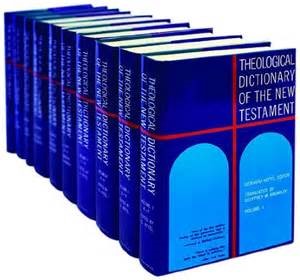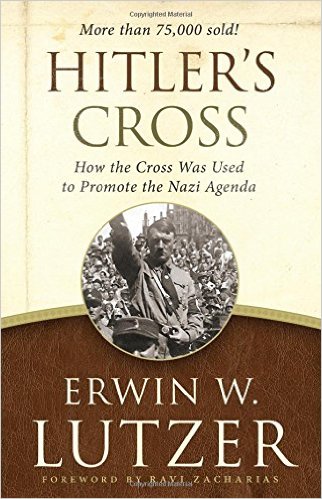In 1928, Adolf Hitler rented a house with “a magnificent view of the Bavarian mountains.” The same year, a world-class German theologian started a massive research project. His work would become the “gold standard” for theological dictionaries of the New Testament.
In 1933, while still working on his dictionary, the theologian joined the Nazi party. He would become known as the “Nazi theologian.” While serving as a leader in the German Church, he also followed the spirit of the age—Nazism—by helping to lay the theological foundation that led millions of Christians away from biblical orthodoxy and into the evil of the Third Reich.
However, a remnant of Christians challenged Hitler, his theologian, and the leadership of the German Church. Many of the Christians who opposed Hitler suffered greatly; some gave their lives for their faith.
Who was this “Nazi theologian”? What is the relevance of this story for today’s Christian? What lessons can we learn from the church in Nazi Germany and, in particular, the Nazi theologian, that have application for today?
My Journey
As many of my readers know, I have written a series of blog posts on the Remnant. Wanting to develop this subject further, I decided to do some research, beginning with the article on the Greek word translated “remnant” in Theological Dictionary of the New Testament (TDNT). Many consider the ten-volume TDNT the “gold standard” of theological dictionaries.
 The initial editor of the TDNT was Gerhard Kittel, a theologian, linguist and New Testament scholar of impeccable scholarly credentials. The English edition of the TDNT, also known as “Kittel,” was published by Wm. B. Eerdmans, one of the most esteemed evangelical publishers in the USA with a global reputation. Eerdmans wrote in praise of Kittel, “Since the publication of the first volume of the German edition, the Theological Dictionary of the New Testament has secured for itself a solid and lasting place in biblical scholarship throughout the world.” Needless to say, it is found in the libraries of many Bible schools and seminaries, and on the shelves of many pastors who do serious exegetical study.
The initial editor of the TDNT was Gerhard Kittel, a theologian, linguist and New Testament scholar of impeccable scholarly credentials. The English edition of the TDNT, also known as “Kittel,” was published by Wm. B. Eerdmans, one of the most esteemed evangelical publishers in the USA with a global reputation. Eerdmans wrote in praise of Kittel, “Since the publication of the first volume of the German edition, the Theological Dictionary of the New Testament has secured for itself a solid and lasting place in biblical scholarship throughout the world.” Needless to say, it is found in the libraries of many Bible schools and seminaries, and on the shelves of many pastors who do serious exegetical study.
I have used Kittel for years and was gifted a complete set two years ago. Like so many Christians, I have found Kittel invaluable in doing word studies in preparation for preaching and teaching.
Kittel was legendary as a New Testament scholar, Protestant theologian and leading lexicographer of the biblical languages in his time. Most of the contributors to the TDNT were Kittel’s contemporary German theologians and biblical scholars. So far, so good!
In looking at the background of the TDNT, I saw something that arrested my attention: the work began in 1928, during the rise of the Nazis in Germany. When the church divided over Hitler, most German pastors and theologians remained loyal to the German church; a minority followed the call of Bonhoeffer and others to form the Confessing Church.
So which path did Kittel take? Did he stay with the state church or did he leave with the dissidents?
I was shocked to discover that he chose the state church. Not only that, he became known as the Nazi Theologian. He headed a theological institute, gave speeches, and wrote papers to develop a theology to support Hitler and the Nazi cause. And, he was rabidly anti-Semitic.
I was stunned! How could this be? One of the great biblical scholars of all time joining the Nazis and becoming an apologist for Hitler?
Wow!
 Then I remembered a powerful book that I read some 20 years ago, Hitler’s Cross: The Revealing Story of How the Cross of Christ Was Used As a Symbol of the Nazi Agenda. The author, Erwin Lutzer, is pastor of historic Moody Church in Chicago.
Then I remembered a powerful book that I read some 20 years ago, Hitler’s Cross: The Revealing Story of How the Cross of Christ Was Used As a Symbol of the Nazi Agenda. The author, Erwin Lutzer, is pastor of historic Moody Church in Chicago.
In poking around on the internet, I found that Lutzer authored another book titled, When a Nation Forgets God: 7 Lessons We Must Learn from Nazi Germany. Eric Metaxas writes in the forward, “This excellent book is so important. It clearly and powerfully explains what the parallels are between Germany’s fall from grace and the beginning of our own fall.”
If we want to avoid the pitfalls that befell Germany in the last century, we must learn the lessons as Christians for today. Hitler wanted to make Germany great again. To do that he created a narrative of German victimhood. This powerful narrative was undergirded by the Nazi Theologian, Kittel.
Needless to say this discovery poses a conundrum.
- How could such a respected Christian scholar, who knew the OT and NT backwards and forwards be anti-Semitic? And join the Nazi cause?
- How could such a meticulous Bible exegete give his life to the Nazi narrative that was so evil and so contrary to the Scriptures to which he devoted his life?
- How come in all my years as a Christian I had never heard that TDNT—one of my key resources—was produced by a Nazi? Do pastors, theologians, Bible schools and seminaries that use Kittel know that he was the Nazi’s theologian? If not, why not?
- What about Eerdmans? How could such a distinguished evangelical publishing house not reveal the background of Kittel or make any substantial disclaimer?
- How am I to think of Kittel now? Can you separate a man from his ideology? Was Kittel living in two worlds, the world of his Christian scholarship and the world of the Nazis? If so, what does such a duality imply about the authenticity of his character, and the legitimacy of his work? What are the implications of dualism for the church in the West today and the very survival of Western civilization?
- What does this historic reality reveal about the power of narrative? Have I been blinded to important truth all these years? What are the implications of the power of an evil narrative to shape the USA?
These are just a few of the questions that come to my mind. Join me on this journey to learn from our past. If we do not learn from our past, we are destined to relive it. In fact, there are signs in the West, particularly in the United States, that we are repeating some of the same mistakes Christians in Germany made.
- Darrow Miller
For Reflection: Is there a part of your journey where you have been shocked in this way? What was the event or new understanding? How did you deal with it?






